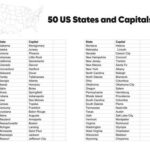
Aidan Hutchinson is betting on his future, foregoing a contract extension with the Detroit Lions and wagering that his performance will significantly increase his value in the long run. The defensive end, entering his third year, is confident in his abilities and believes a stellar season will justify his decision to play out his current rookie contract.
Hutchinson Forgoes Extension, Banks on Future Performance
Aidan Hutchinson, the Detroit Lions’ star defensive end, is taking a significant gamble on himself by choosing not to pursue a contract extension this offseason. Entering his third year with the team, Hutchinson is betting that his on-field performance will dramatically increase his value, leading to a more lucrative deal down the line. This decision carries considerable risk, as injuries or a decline in performance could negatively impact his earning potential. However, Hutchinson’s confidence remains unwavering, fueled by a strong belief in his abilities and the Lions’ upward trajectory.
The decision to forgo an extension is a calculated one, reflecting Hutchinson’s self-assuredness and the evolving landscape of NFL contracts. Typically, players of Hutchinson’s caliber would be eager to lock in long-term security. However, the rising salary cap and the increasing value placed on premier pass rushers have likely influenced his strategy. By waiting, Hutchinson believes he can capitalize on these trends and secure a contract that accurately reflects his market value.
“Aidan is betting on himself, plain and simple,” said an NFL analyst familiar with the situation. “He’s a high-character guy with immense talent. He believes he can outperform what the Lions might offer now, and he’s probably right. The pass rusher market is exploding, and another dominant season could put him in the top tier.”
Hutchinson’s rookie contract, signed in 2022, provides him with financial stability for the next two seasons. However, the allure of a potentially larger payday is driving his decision. The risk is evident: injuries are an inherent part of football, and a significant setback could derail his plans. Additionally, unforeseen circumstances, such as a change in the Lions’ defensive scheme or a dip in his statistical production, could diminish his market value.
Analyzing Hutchinson’s Potential
Hutchinson’s confidence isn’t unfounded. He has quickly established himself as a cornerstone of the Lions’ defense. In his rookie season, he recorded 9.5 sacks, showcasing his ability to disrupt opposing quarterbacks. He followed that up with 11.5 sacks in his second season, solidifying his status as a premier pass rusher. His consistent performance and relentless motor have made him a fan favorite in Detroit.
Beyond the statistics, Hutchinson brings invaluable leadership and energy to the Lions’ defense. His passion for the game is infectious, and he sets a high standard for his teammates. This intangible quality further enhances his value, making him a player the Lions are eager to keep long-term.
The Lions, under the leadership of General Manager Brad Holmes and Head Coach Dan Campbell, have demonstrated a commitment to building a winning culture. Extending Hutchinson would send a powerful message to the rest of the team, signaling their intent to retain key players and compete for championships. However, they also need to manage their salary cap effectively and ensure they have the financial flexibility to address other roster needs.
“We love Aidan. He’s everything we want in a Detroit Lion,” Coach Campbell stated during a press conference. “But these contract situations are complex. We have to balance the present with the future. We’ll continue to have conversations, but ultimately, it’s about what’s best for both sides.”
The Lions have several factors to consider. They have other key players who will be eligible for extensions soon, including quarterback Jared Goff and wide receiver Amon-Ra St. Brown. Managing the salary cap will require careful planning and strategic decision-making.
The Risks and Rewards
Hutchinson’s decision carries both substantial risks and potentially significant rewards.
Risks:
- Injury: A serious injury could drastically reduce his value and jeopardize his long-term earning potential.
- Performance Decline: A dip in performance, whether due to schematic changes, increased double-teaming, or other factors, could lower his market value.
- Market Fluctuations: Unforeseen changes in the NFL’s economic landscape could impact the value of pass rushers.
- Lions’ Strategy Shift: The Lions might prioritize other positions or players in the future, potentially diminishing Hutchinson’s leverage.
Rewards:
- Larger Contract: A stellar season could position him for a significantly larger contract, potentially making him one of the highest-paid defensive players in the league.
- Increased Endorsement Opportunities: Enhanced performance and recognition could lead to more lucrative endorsement deals.
- Greater Leverage: By playing out his contract, he gains more control over his future, potentially allowing him to choose his next team or negotiate specific terms.
NFL Contract Dynamics
Understanding the complexities of NFL contracts is crucial to appreciating Hutchinson’s decision. NFL contracts are not fully guaranteed, meaning teams can release players before the contract expires without paying the full amount. This contrasts with contracts in other major sports leagues, such as the NBA and MLB, where contracts are often fully guaranteed.
The salary cap is a mechanism designed to promote competitive balance by limiting the amount of money teams can spend on player salaries. This forces teams to make difficult decisions about which players to retain and which to let go.
Franchise tags are another tool teams use to retain key players. The franchise tag allows a team to designate one player as a “franchise player,” preventing them from becoming a free agent. There are two types of franchise tags: exclusive and non-exclusive. The exclusive franchise tag prevents the player from negotiating with other teams, while the non-exclusive tag allows the player to negotiate with other teams, but the original team has the right to match any offer.
Hutchinson’s Potential Contract Scenarios
If Hutchinson continues to perform at a high level, he could command a contract similar to those of other elite pass rushers, such as Nick Bosa of the San Francisco 49ers, T.J. Watt of the Pittsburgh Steelers, and Myles Garrett of the Cleveland Browns. These players have contracts averaging over $25 million per year, with significant guaranteed money.
If Hutchinson has a dominant season, he could potentially reset the market for defensive ends, pushing his average annual value even higher. However, if his performance declines or he suffers an injury, his value could decrease, and he might have to settle for a smaller contract.
The Lions also have the option of using the franchise tag to retain Hutchinson if they are unable to reach a long-term agreement. This would give them more time to negotiate a contract and prevent him from becoming a free agent. However, the franchise tag is a one-year deal, and it can be costly, especially for a premier player like Hutchinson.
Impact on the Detroit Lions
Hutchinson’s decision has implications for the Lions’ long-term plans. While they undoubtedly want to keep him in Detroit, they also need to consider the financial implications of a potentially massive contract. The Lions have made significant strides in recent years, transforming from a perennial loser to a legitimate playoff contender. Retaining key players like Hutchinson is crucial to sustaining their success.
The Lions have a strong nucleus of young talent, and they are well-positioned to compete for championships in the coming years. However, they need to manage their salary cap wisely and make smart decisions about which players to invest in.
“We’re building something special here in Detroit,” said a Lions team official. “We want to keep our core players together, but we also have to be responsible with our money. It’s a balancing act.”
The Lions’ brass undoubtedly has a number in mind regarding what they feel is appropriate for Hutchinson, and that number may not align with what Hutchinson thinks he can get on the open market with another stellar season. It’s a chess match.
The Broader NFL Context
Hutchinson’s situation is not unique. Many NFL players face similar decisions as they approach the end of their rookie contracts. The desire for long-term security must be balanced against the potential for a larger payday.
The NFL Players Association (NFLPA) advocates for players’ rights and works to ensure they receive fair compensation. The NFLPA also provides resources and guidance to players navigating contract negotiations.
The increasing value placed on pass rushers reflects the evolving nature of the game. In today’s NFL, teams prioritize pressuring the quarterback, and players who can consistently generate sacks are highly coveted. This has driven up the price for elite pass rushers, making them some of the highest-paid players in the league.
Conclusion
Aidan Hutchinson is taking a calculated risk by foregoing a contract extension and betting on his future performance. His decision reflects his confidence in his abilities and the evolving landscape of NFL contracts. While there are inherent risks involved, the potential rewards are significant.
The Lions face a challenging decision as they balance their desire to retain Hutchinson with the need to manage their salary cap effectively. The outcome of this situation will have a significant impact on the Lions’ long-term success and Hutchinson’s career trajectory.
Ultimately, Hutchinson’s gamble underscores the high-stakes nature of professional football and the complex dynamics of NFL contracts. His performance in the upcoming season will determine whether his bet pays off.
FAQ
-
Why did Aidan Hutchinson decide not to sign a contract extension with the Detroit Lions?
Aidan Hutchinson chose not to sign an extension because he believes his performance will significantly increase his market value. He is betting that a strong season will lead to a more lucrative contract in the future. He wants to capitalize on the rising salary cap and the premium placed on pass rushers.
-
What are the risks associated with Hutchinson’s decision?
The risks include potential injuries that could reduce his value, a decline in performance due to various factors (e.g., schematic changes, increased double-teaming), market fluctuations that might impact the value of pass rushers, and potential shifts in the Lions’ strategy that could diminish his leverage.
-
What are the potential rewards for Hutchinson if his gamble pays off?
The rewards include a significantly larger contract, potentially making him one of the highest-paid defensive players in the NFL, increased endorsement opportunities due to enhanced performance and recognition, and greater leverage in future negotiations, potentially allowing him to choose his next team or negotiate specific terms.
-
How does the NFL salary cap affect the Detroit Lions’ ability to offer Hutchinson a contract extension?
The salary cap limits the amount of money the Lions can spend on player salaries, forcing them to make strategic decisions about which players to retain. They must balance their desire to keep Hutchinson with the need to address other roster needs and extend other key players like Jared Goff and Amon-Ra St. Brown. Managing the salary cap effectively is crucial for maintaining long-term competitiveness.
-
What options do the Detroit Lions have if they cannot reach a long-term agreement with Hutchinson?
The Lions have the option of using the franchise tag to retain Hutchinson, preventing him from becoming a free agent. This gives them more time to negotiate a contract, but it’s a one-year deal that can be costly. There are exclusive and non-exclusive franchise tags. The exclusive franchise tag prevents the player from negotiating with other teams, while the non-exclusive tag allows the player to negotiate with other teams, but the original team has the right to match any offer.
-
How has Aidan Hutchinson performed so far in his NFL career?
Aidan Hutchinson has performed exceptionally well in his first two seasons. He recorded 9.5 sacks in his rookie year and followed that up with 11.5 sacks in his second season, establishing himself as a premier pass rusher and a key component of the Lions’ defense. His consistent performance has made him a fan favorite and a valuable asset to the team.
-
What is the NFLPA and what role does it play in contract negotiations?
The NFL Players Association (NFLPA) is a labor union representing NFL players. It advocates for players’ rights and works to ensure they receive fair compensation and benefits. The NFLPA provides resources and guidance to players navigating contract negotiations, helping them understand their rights and options.
-
Who are some other NFL defensive ends with contracts similar to what Hutchinson might be seeking?
Elite pass rushers like Nick Bosa of the San Francisco 49ers, T.J. Watt of the Pittsburgh Steelers, and Myles Garrett of the Cleveland Browns have contracts averaging over $25 million per year, with significant guaranteed money. These contracts serve as benchmarks for Hutchinson’s potential value if he continues to perform at a high level.
-
How does Hutchinson’s leadership and energy affect his value to the Detroit Lions?
Beyond his statistical performance, Hutchinson brings invaluable leadership and energy to the Lions’ defense. His passion for the game is infectious, and he sets a high standard for his teammates. This intangible quality enhances his value, making him a player the Lions are eager to keep long-term, as he contributes to the team’s overall culture and performance.
-
What message would extending Hutchinson send to the rest of the Detroit Lions team?
Extending Hutchinson would send a powerful message to the rest of the team, signaling the organization’s intent to retain key players and compete for championships. It demonstrates a commitment to building a winning culture and investing in players who are crucial to the team’s success, fostering a sense of stability and ambition within the locker room.
-
Are NFL contracts fully guaranteed? If not, what does this mean for players?
No, NFL contracts are generally not fully guaranteed. This means that teams can release players before the contract expires without paying the full amount, unlike contracts in other major sports leagues like the NBA and MLB. This lack of full guarantee adds an element of risk for players, as their financial security is contingent on their performance and the team’s decisions.
-
How has the Detroit Lions organization changed under General Manager Brad Holmes and Head Coach Dan Campbell, and how does this impact Hutchinson’s situation?
Under the leadership of General Manager Brad Holmes and Head Coach Dan Campbell, the Detroit Lions have transformed from a perennial loser to a legitimate playoff contender. This change has created a positive environment and a winning culture, making the team more desirable for players like Hutchinson. Their commitment to building a competitive team also influences their approach to contract negotiations, as they aim to retain key players while managing the salary cap responsibly.
-
How do franchise tags work in the NFL and why might the Lions consider using one on Hutchinson?
Franchise tags are a tool teams use to retain key players by preventing them from becoming free agents. There are two types: exclusive (player cannot negotiate with other teams) and non-exclusive (player can negotiate, but the original team can match any offer). The Lions might consider using a franchise tag on Hutchinson if they cannot reach a long-term agreement, giving them more time to negotiate while preventing him from leaving. However, franchise tags are costly, especially for premier players.
-
What are some examples of unforeseen circumstances that could diminish Hutchinson’s market value?
Unforeseen circumstances could include significant changes in the Lions’ defensive scheme that don’t suit his strengths, an increase in double-teaming that reduces his statistical production, or broader economic shifts in the NFL that impact the value of pass rushers. These factors could potentially lower his market value and affect his ability to secure a lucrative contract.
-
What are some potential endorsement opportunities that Hutchinson might gain if his performance improves?
If Hutchinson’s performance improves and he gains more recognition, he could attract endorsement deals with major brands in areas such as sportswear, equipment, automotive, and local Detroit-based businesses. Enhanced performance and visibility increase his marketability and make him a more attractive partner for companies seeking to reach a wider audience.
-
What is the significance of the rising salary cap in the NFL, and how does it impact player contracts?
The rising salary cap allows teams to spend more money on player salaries, which generally leads to larger contracts for top players. This trend benefits players like Hutchinson who are seeking to maximize their earning potential. As the cap increases, the value of premier positions like pass rusher also rises, potentially leading to even more lucrative deals.
-
How might a change in the Lions’ defensive scheme affect Hutchinson’s performance and contract negotiations?
If the Lions implement a defensive scheme that doesn’t align with Hutchinson’s strengths or reduces his opportunities to generate sacks, it could negatively impact his performance and lower his market value. Conversely, a scheme that enhances his abilities could lead to even greater success and a more lucrative contract. Therefore, the defensive scheme plays a significant role in his overall value.
-
What are the typical contract structures for elite NFL pass rushers?
Typical contract structures for elite NFL pass rushers include high average annual values (often exceeding $25 million), significant guaranteed money to provide financial security, and potential incentives based on performance metrics like sacks, Pro Bowl selections, and All-Pro honors. These structures reflect the importance and value placed on these players.
-
How does the risk of injury influence contract decisions in the NFL?
The risk of injury is a major factor in contract decisions in the NFL, as a serious injury can significantly reduce a player’s value and jeopardize their long-term earning potential. This risk often motivates players to seek long-term contracts with guaranteed money to protect themselves financially in case of injury. Teams, on the other hand, must weigh the potential benefits of signing a player to a long-term deal against the risk of injury and the financial consequences of paying an injured player who cannot contribute.
-
How might Hutchinson leverage his status and performance to influence future contract negotiations?
Hutchinson can leverage his status and performance by consistently demonstrating exceptional play, maintaining a strong public image, and building a positive relationship with the team and fans. By showcasing his value both on and off the field, he can strengthen his negotiating position and potentially secure a more favorable contract that reflects his contributions to the team and the community.









